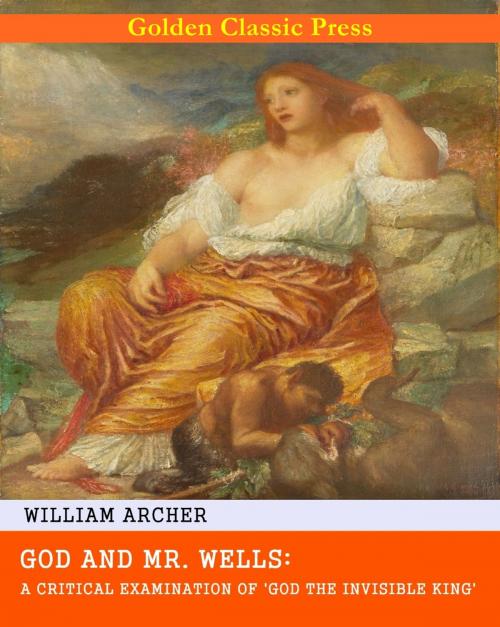God and Mr. Wells: A Critical Examination of 'God the Invisible King'
Fiction & Literature, Psychological, Classics, Literary| Author: | William Archer | ISBN: | 1230002942728 |
| Publisher: | GOLDEN CLASSIC PRESS | Publication: | November 28, 2018 |
| Imprint: | Language: | English |
| Author: | William Archer |
| ISBN: | 1230002942728 |
| Publisher: | GOLDEN CLASSIC PRESS |
| Publication: | November 28, 2018 |
| Imprint: | |
| Language: | English |
*** Original and Unabridged Content. Made available by GOLDEN CLASSIC PRESS***
Synopsis:
William Archer, (born Sept. 23, 1856, Perth, Scot.—died Dec. 27, 1924, London, Eng.), Scottish drama critic whose translations and essays championed Henrik Ibsen to the British public.
While studying law at Edinburgh, Archer began his journalistic career on the Edinburgh Evening News. After a world tour (1876–77), in 1878 he moved to London and in 1879 became drama critic on the London Figaro. In 1884 he joined the World; his reviews for it and other periodicals were collected in The Theatrical World of 1893–1897, 5 vol. (1894–98). He was later drama critic on the Nation, the Tribune, and the Manchester Guardian. He advocated a more intellectual drama and greater theatrical subtlety than the British public was accustomed to.
The translations of Ibsen that were to make him famous began with Pillars of Society (1880), the first of the plays produced in England. Later translations included A Doll’s House (1889), Ibsen’s Prose Dramas, 5 vol. (1890–91), Peer Gynt (1892), The Master Builder (1893), and the Collected Works, 12 vol. (1906–12). Despite faults, these had great influence. His support for a national theatre prompted A National Theatre: Scheme and Estimates (1907), with Harley Granville-Barker. Archer’s play The Green Goddess (1921) was extremely successful and was often revived. Several of his other plays were posthumously published.
*** Original and Unabridged Content. Made available by GOLDEN CLASSIC PRESS***
Synopsis:
William Archer, (born Sept. 23, 1856, Perth, Scot.—died Dec. 27, 1924, London, Eng.), Scottish drama critic whose translations and essays championed Henrik Ibsen to the British public.
While studying law at Edinburgh, Archer began his journalistic career on the Edinburgh Evening News. After a world tour (1876–77), in 1878 he moved to London and in 1879 became drama critic on the London Figaro. In 1884 he joined the World; his reviews for it and other periodicals were collected in The Theatrical World of 1893–1897, 5 vol. (1894–98). He was later drama critic on the Nation, the Tribune, and the Manchester Guardian. He advocated a more intellectual drama and greater theatrical subtlety than the British public was accustomed to.
The translations of Ibsen that were to make him famous began with Pillars of Society (1880), the first of the plays produced in England. Later translations included A Doll’s House (1889), Ibsen’s Prose Dramas, 5 vol. (1890–91), Peer Gynt (1892), The Master Builder (1893), and the Collected Works, 12 vol. (1906–12). Despite faults, these had great influence. His support for a national theatre prompted A National Theatre: Scheme and Estimates (1907), with Harley Granville-Barker. Archer’s play The Green Goddess (1921) was extremely successful and was often revived. Several of his other plays were posthumously published.















